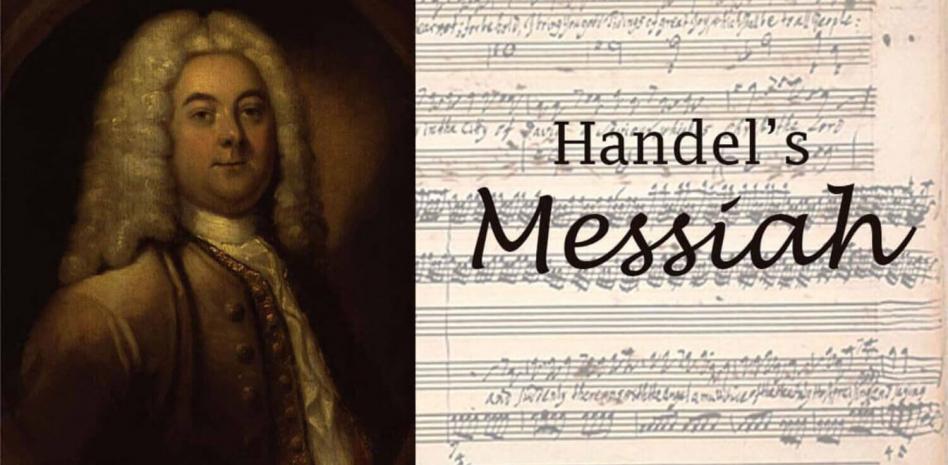A stellar gift to humanity; a story worth telling
"Georg Friedrich Händel's Messiah, a glorious oratorio that hides a story that deserves to be told.
Every time Christmas time approaches, thousands of people around the world listen once again to the magnificent arias and choruses that make up the most celebrated work of sacred music of all time: Georg Friedrich Handel's Messiah. Underneath this glorious oratorio lies a story that deserves to be told. The great writer Stefan Zweig even considered it to be one of the highlights of human history, one of those moments that set a new course for the world.
On 13 April 1737, Händel, exhausted, ill and overburdened with debts, collapsed from an attack of cerebral palsy that caused a stroke on the right side of his body. His condition is so pitiful that the doctor says: "Perhaps we can keep the man. The musician we have lost. However, with the strength of an irrepressible spirit, the composer travels to the hot baths of Aachen, where after six weeks he is fit again. Some speak of a miraculous cure.
In a short time, Handel is once again composing. Operas, oratorios, odes? We have recovered the man and the musician. However, after a couple of years, the darkest and darkest shadow returns. On the one hand, the times are difficult: the death of the queen interrupts the auditions, the war begins in Spain, a terrible winter comes over London and freezes the Thames. With the cold comes illness. Concerts were cancelled. In 1740, Handel was in a state of creative dryness. Critics hounded him, the public perceived that he had gone out of fashion. Debts mounted. Depressed and tired, the great genius does not go out on the streets to avoid being harassed by debt collectors. He wanders the streets of London at night, disenchanted with the world, ruined, without the just recognition his genius deserves. Without ideas, without creativity, he feels despised, abandoned, tired of living.
On this occasion, Händel does not feel the gigantic impetus that moved him to cure himself against all hope in 1737. Rather, he senses that his spirit is dead. One day he finds a letter from the librettist Charles Jennens: he asks him to compose the music for an oratorio on the life of Christ with words taken from the Bible. Händel senses a cruel mockery: why ask a dead man to do so? Driven by a stubborn curiosity, he decides to take a look at the manuscript of the libretto.
Stefan Zweig imagines how Händel would feel about the texts that appeared before his eyes. The first words he reads say "Comfort ye", be comforted. He continues to read the words of the prophet. He feels God speaking directly to him: "lift up thy voice with strength; lift it up, be no afraid". The words of Isaiah, Malachi, Matthew, Luke, begin to produce a strange effect in the heart of the great composer. The passages of Scripture sound in his mind as if enveloped in a music that rises up to the heavenly vault. Inside him he feels pulsations, intense vitality. The music goes on and on. The flow of creativity grows uncontrollably. When he reads the mysterious word "Hallelujah!", his whole being shudders. He experiences in his vision a vocal exhilaration that, in Zweig's words, pains him "like a liquid fire that would like to spurt out, to overflow". The word "Hallelujah!", which is an abbreviation in Hebrew for "praise Yahweh", keeps rising as if in expansive waves that repeat themselves as if they were an eternal song that never dies out. Handel picks up his pen, feels as if he has been swept away from himself, and begins to write. He spends the whole night scribbling notes. The ideas never cease to invade him. As soon as he eats, he loses track of time. And so the next three weeks go by.
In just 24 days Handel has written a monumental work lasting around two and a half hours. This is perhaps the greatest feat in the history of musical composition. Reflecting on those days he would later say that he would not know for sure whether he was in or out of his body. He never wanted to take much credit for the work. He had the impression that it didn't belong to him. He was asked to donate the proceeds from the premiere to help prisoners and the sick, but Händel was not content to donate only the proceeds from the first date. He never wanted to charge money for the work.
On 13 April 1742, the same day on which five years earlier he had collapsed from paralysis, Messiah was premiered in Dublin. Not a single year since then has it ceased to play. Again and again we hear the joyful words that announce God's presence among us and fill us with living hope, the hope that comes from the conviction that we are not alone and that the evil of history does not have the last word.
Some recommended versions of The Messiah



